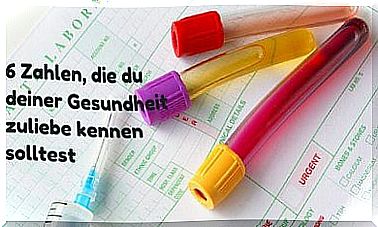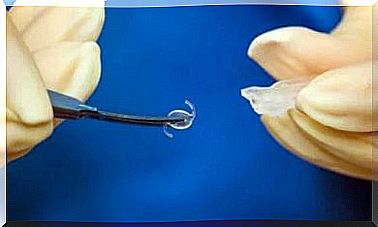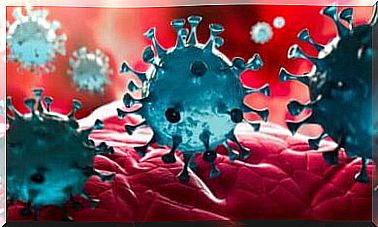Folic Acid And Folate: What’s The Difference?
Folic acid and folate differ in their origin: Folate is one of the water-soluble B vitamins and is of natural origin. It can be found in various foods. However, folic acid is a purely laboratory product that does not exist as such in nature. It is taken as a dietary supplement.
Although the names of these two substances cause confusion, they are different products: Folate is a natural B-group vitamin, but folic acid is a laboratory product that has no vitamin function.
Folate can be found in most green leafy vegetables. The artificially produced folic acid, on the other hand, is used as a dietary supplement or to fortify certain foods.
What is Folate or Vitamin B9?
Both folic acid and folate are often given the name vitamin B9, which leads us to believe that they are the same substance. We are talking about a water-soluble B-group vitamin. The name folic acid comes from the Latin word “folium”, which means “leaf”.
The main natural sources of vitamin B9 are:
- Green leafy vegetables: spinach, kale, Swiss chard, cabbage, lettuce …
- Different types of fruit: citrus, melon and banana
- legumes
- Meat: mainly liver and kidneys
- Whole grain cereals
- Milk and eggs
- Various dried fruits
Vitamin B9 is particularly important in the first few weeks of pregnancy. This is why many pregnant women are given folic acid, because it reduces the risk of deformities in the growing baby. The doctor treating you will prescribe the necessary amount of folic acid for the pregnant woman before, during and after the pregnancy.
Vitamin B9 is necessary for the formation of the nucleic acids (DNA and RNA), which carry the genetic information to the cells. Along with vitamin B12, it is also essential for red blood cell formation and the development of the nervous system.
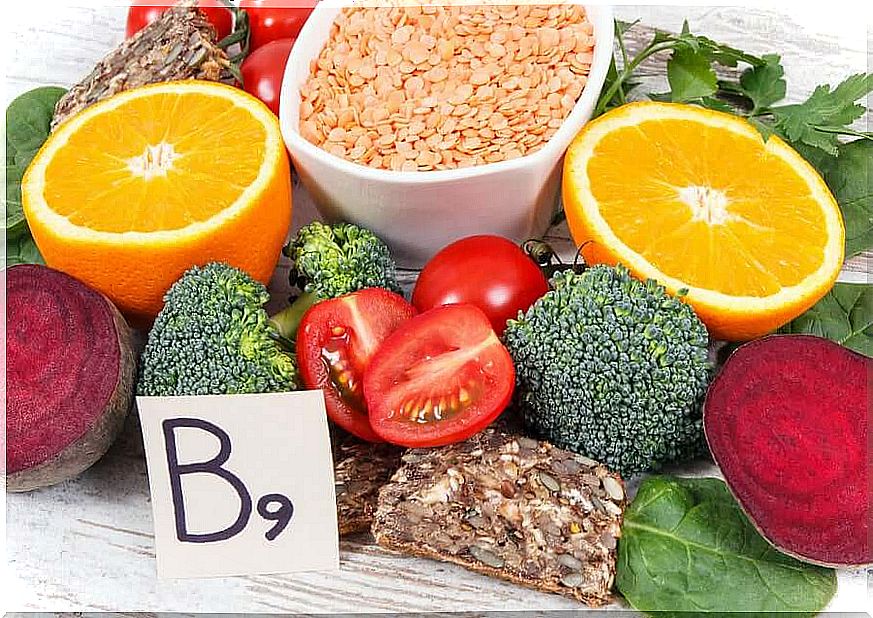
Differences Between Folic Acid and Folate
The human organism is prepared to absorb folate. This occurs naturally through the intestinal lining. The digestive system is able to transform all forms of folate into 5-methyltetrahydrofolate (5-MTHF), which is then absorbed into the bloodstream.
However, folic acid is an artificially synthesized product in the laboratory that is not reconverted by the digestive system. It has to be metabolized by the liver, which requires various additional enzymatic and metabolic reactions.
This process can lead to an excess of unassimilated folic acid, which is associated with risks. Elevated folic acid levels in the blood can trigger various health problems.
While folate is metabolized immediately after ingestion , this process can take several hours or even days for folic acid. If folic acid levels are increased over a short period of time, this has no further health effects. But when the folic acid level is chronically high, symptoms can arise.
The following consequences of long-term increased plasma folic acid levels have been described:
- Hidden vitamin B12 deficiency: The high levels of folic acid in the blood can cause a blood test to give positive results for the B12 levels.
- Increased risk of cancer: Different studies show that there is a statistical connection between an increased level of folic acid in the blood and an increased risk for Colon cancer exists.
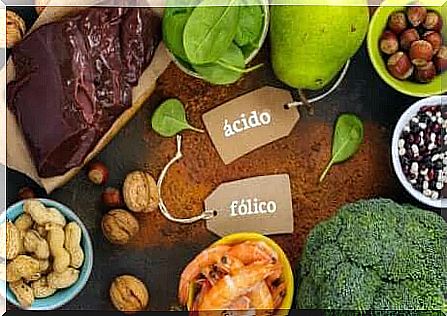
Why is folate or vitamin B9 important?
The organism needs different amounts of folate in different life situations: The dosage depends on age, body weight, gender and also on whether you are pregnant. It is best to seek advice from your doctor to ensure that you are taking the necessary amounts.
Vitamin B9 is essential for the following functions:
- Decomposition of proteins and absorption of nutrients
- Formation of blood cells: white and red blood cells
- Formation of DNA for the transport of genetic information
- Prevention of deformities of the fetus in pregnant women
- It supports the correct functioning of the cardiovascular system,
- is important for the immune system and
- works against tiredness and exhaustion.
Final remark
All sources are good and important to supply the organism with sufficient vitamin B9, but the best way to get this vitamin is through the consumption of green leafy vegetables.
In certain situations, however, folic acid supplementation is essential, especially before and during pregnancy. Your doctor will give you detailed information about this so that you are getting the right amounts.

